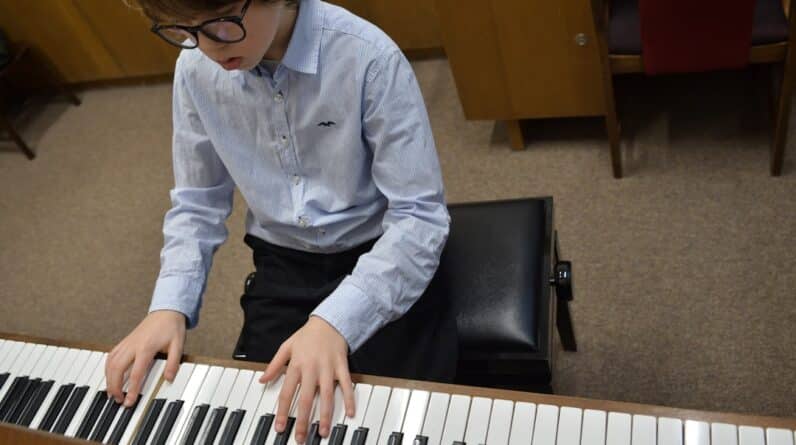
As an aspiring musical theater performer, you must recognize that your journey is distinct from that of traditional singers or actors. The world of musical theater demands a unique blend of skills, where singing, acting, and dancing converge to create a compelling performance. You are not just a vocalist; you are a storyteller, and your voice is a powerful tool in conveying emotions and narratives.
This multifaceted nature of musical theater requires you to develop a diverse skill set that goes beyond mere vocal ability. In this vibrant art form, you will find that each character you portray has its own emotional landscape, requiring you to tap into various aspects of your personality and experiences. Understanding the nuances of character development is essential, as it allows you to connect with your audience on a deeper level.
You must learn to embody the characters you portray, using your voice not only to sing but also to express their thoughts and feelings. This holistic approach to performance is what sets musical theater apart and makes it a unique and rewarding endeavor.
Key Takeaways
- Musical theater performers have unique needs that require a combination of vocal, acting, and movement training.
- Vocal technique and acting skills are crucial for success in musical theater, as performers must be able to convey emotion and tell a story through song.
- Finding the right singing training program for musical theater aspirations involves seeking out instructors with experience in both vocal and theatrical techniques.
- Dance and movement training should be incorporated into singing training for musical theater, as performers often need to sing and dance simultaneously.
- Repertoire selection is important in musical theater singing training, as performers should choose songs that showcase their vocal and acting abilities.
- Specialized musical theater singing training programs offer benefits such as focused instruction and networking opportunities within the industry.
- Aspiring musical theater performers can enhance their singing skills by seeking out performance opportunities, working with a vocal coach, and attending workshops and masterclasses.
- Resources for finding and applying to musical theater singing training programs include industry websites, college and university programs, and professional organizations such as the National Association of Teachers of Singing.
The importance of vocal technique and acting skills in musical theater
Vocal technique is the foundation upon which your musical theater career will be built. As you embark on this journey, you will quickly discover that a strong vocal technique is essential for sustaining long performances and delivering powerful, emotive songs. You need to develop breath control, pitch accuracy, and vocal agility to navigate the demanding scores typical of musical theater.
Without these skills, you may find yourself struggling to hit high notes or maintain vocal health during extended runs of a show. However, vocal technique alone is not enough. Acting skills are equally crucial in musical theater, as they allow you to bring depth and authenticity to your performances.
You must learn how to interpret lyrics and infuse them with emotion, transforming a simple song into a captivating narrative. This requires an understanding of character motivation and the ability to connect with your fellow performers on stage. By honing both your vocal and acting skills, you will create a more dynamic and engaging performance that resonates with audiences.
Finding the right singing training program for musical theater aspirations

When it comes to pursuing your dreams in musical theater, finding the right singing training program is paramount. You should seek out programs that specialize in musical theater, as they will provide you with the specific training needed to excel in this genre. Look for institutions that offer comprehensive curricula encompassing vocal technique, acting classes, and performance opportunities.
This well-rounded approach will ensure that you are equipped with the necessary skills to thrive in the competitive world of musical theater. As you explore various programs, consider factors such as faculty expertise, class sizes, and performance opportunities. Engaging with experienced instructors who have a background in musical theater can provide invaluable insights and mentorship.
Additionally, smaller class sizes often allow for more personalized attention, enabling you to receive constructive feedback tailored to your unique needs. Ultimately, the right program will not only enhance your singing abilities but also foster your growth as a well-rounded performer.
Incorporating dance and movement into singing training for musical theater
In the realm of musical theater, dance and movement play an integral role in storytelling. As you develop your singing skills, it is essential to incorporate dance training into your regimen. This combination will not only enhance your physicality on stage but also improve your overall performance quality.
Learning choreography allows you to express emotions through movement while simultaneously delivering powerful vocal performances. Moreover, understanding how to move while singing can significantly impact your breath control and vocal projection. When you engage in physical activity while performing, you must learn to manage your breath effectively to maintain vocal clarity.
Dance training can also help you develop body awareness, allowing you to connect with your character on a deeper level. By integrating dance into your singing training, you will become a more versatile performer capable of captivating audiences with both your voice and movement.
The role of repertoire selection in musical theater singing training
Repertoire selection is a critical aspect of your singing training in musical theater. The songs you choose to perform should not only showcase your vocal abilities but also align with the characters you wish to portray. Selecting pieces that resonate with you personally can enhance your emotional connection to the material, making it easier for you to convey the story behind the song.
As you explore different genres and styles within musical theater, consider how each piece reflects your unique voice and artistic identity. Additionally, working on a diverse repertoire can help you develop versatility as a performer. Musical theater encompasses a wide range of styles, from classic Broadway tunes to contemporary pop-infused scores.
By challenging yourself with various genres, you will expand your vocal range and adaptability on stage. Collaborating with instructors or peers can also provide valuable feedback on your repertoire choices, ensuring that you are selecting pieces that highlight your strengths while pushing you to grow as an artist.
The benefits of specialized musical theater singing training programs

Specialized musical theater singing training programs offer numerous advantages for aspiring performers like yourself. These programs are designed specifically for individuals pursuing careers in musical theater, providing targeted instruction that addresses the unique demands of this art form. By enrolling in such a program, you will gain access to expert faculty who understand the intricacies of musical theater performance and can guide you through the nuances of vocal technique and acting.
Moreover, specialized programs often provide ample opportunities for practical experience through performances and showcases. These experiences are invaluable for building confidence and honing your craft in front of an audience. You will also have the chance to collaborate with fellow aspiring performers, fostering a sense of community and support within the program.
Ultimately, specialized training can accelerate your growth as an artist and prepare you for the challenges of a professional career in musical theater.
Tips for aspiring musical theater performers to enhance their singing skills
As you navigate your journey in musical theater, there are several tips that can help enhance your singing skills. First and foremost, prioritize consistent practice. Regular vocal exercises will strengthen your voice and improve your technique over time.
Set aside dedicated time each day to work on scales, breath control exercises, and repertoire pieces. This commitment will pay off as you develop greater vocal agility and confidence. Additionally, seek feedback from trusted mentors or peers who can provide constructive criticism on your performances.
Embrace opportunities for collaboration with other performers, as this can lead to valuable insights and new perspectives on your craft. Finally, don’t forget the importance of self-care for your voice. Hydration, proper warm-ups, and rest are essential components of maintaining vocal health as you pursue your passion for musical theater.
Resources for finding and applying to musical theater singing training programs
Finding the right resources for musical theater singing training programs can be an overwhelming task, but there are numerous avenues available to assist you in this process. Start by researching local colleges or universities that offer specialized programs in musical theater or vocal performance. Many institutions have dedicated websites where you can find information about their curricula, faculty, and application procedures.
In addition to academic institutions, consider exploring community theaters or conservatories that may offer workshops or classes focused on musical theater training. Networking within the local performing arts community can also lead to valuable recommendations for programs that align with your aspirations. Finally, online platforms such as social media groups or forums dedicated to musical theater can provide insights from fellow performers who have navigated similar paths.
By utilizing these resources effectively, you can find the right training program that aligns with your goals and sets you on the path toward success in musical theater.
FAQs
What are singing training programs for individuals with aspirations in musical theater?
Singing training programs for individuals with aspirations in musical theater are specialized programs designed to provide vocal training and performance skills specifically tailored for the demands of musical theater.
What do these programs typically cover?
These programs typically cover a range of topics including vocal technique, musical interpretation, stage presence, acting through song, audition preparation, and repertoire selection specific to musical theater.
Are there specific programs that focus solely on musical theater singing training?
Yes, there are specific programs and schools that offer training exclusively for musical theater singing. These programs are designed to provide a comprehensive education in musical theater performance and often include opportunities to perform in musical productions.
What are the benefits of enrolling in a singing training program for musical theater?
Enrolling in a singing training program for musical theater can provide aspiring performers with the opportunity to develop their vocal and performance skills in a supportive and focused environment. These programs can also offer networking opportunities and connections to the musical theater industry.
How can one find a suitable singing training program for musical theater?
One can find suitable singing training programs for musical theater by researching and comparing different programs, considering factors such as faculty expertise, curriculum, performance opportunities, and alumni success. It is also beneficial to attend auditions, open houses, or workshops offered by these programs to get a sense of the training and environment.





